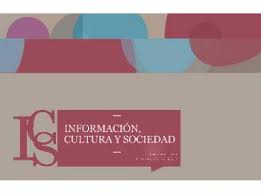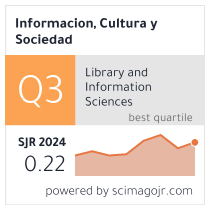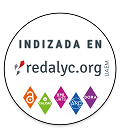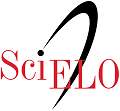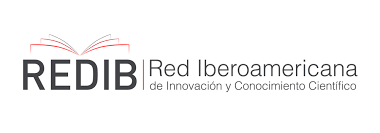Normal or post-normal times for Information Science
Abstract
This Editorial is a review of the perspectives that attempt to describe the concepts produced in scientific and technological research in relation to “post-normal science”. These studies have had a great impact in recent years and their approach, in their most notable contributions, assume rethinking the discipline as a producer of knowledge. These transformations are associated with a closer approach of science towards the interests and preferences of its main social actors. Information science, challenged by post-normal science, in the sense that Silvio Funtowicz and Jerome Ravetz attributed to the latter term, faces situations in which the encounter with information, knowledge, and wisdom are provided in complex contexts, where the conceptual frameworks that structure the librarian’s perspective must co-evolve in order not to remain unchanged.Downloads
References
Bawden, David y Lyn Robinson. 2018. Curating the infosphere: Luciano Floridi’s Philosophy of Information as the foundation for Library and Information Science. En Journal of Documentation. Vol. 74, no. 1, 2-17. <https://doi.org/10.1108/JD-07-2017-0096>
Brüggemann, Michael, Ines Lörcher y Stefanie Walter. 2020. Post-normal science communication: exploring the blurring boundaries of science and journalism. En Journal of Science Communication. Vol. 19, no. 3, A02. <https://doi.org/10.22323/2.19030202>
Chew, Fiona. 1994. The Relationship of Information Needs to Issue Relevance and Media Use. En Journalism Quarterly. Vol. 71, no. 3, 676-688. <https://doi.org/10.1177/107769909407100318>
Funtowicz, Silvio. 2020. Ciencia Posnormal en acción. Ministerio de Ciencia y Tecnología. <https://youtu.be/I_1nW_wwP2Y>[Consulta: 20 octubre 2021].
Funtowicz, Silvio O. y Jerome R. Ravetz. 1994. Uncertainty, complexity and post-normal science. En Environmental Toxicology and Chemistry: An International Journal. Vol. 13, no. 12, 1881-1885. <https://doi.org/10.1002/etc.5620131203>
Funtowicz, Silvio O. y Jerome R. Ravetz. 2019. Science for the post-normal age. En Sardar, Ziauddin, ed. The Postnormal Times Reader. Washington DC: International Institute of Islamic Thought. p. 23-46. <http://www.jstor.org/stable/j.ctv10kmcqv.4> [Consulta: 20 octubre 2021].
Howell, Emily L., Christopher D. Wirz, Dietram A. Scheufele, Dominique Brossard y Michael A. Xenos. 2020. Deference and decision-making in science and society: How deference to scientific authority goes beyond confidence in science and scientists to become authoritarianism. En Public Understanding of Science. Vol. 29, no. 8, 800-818. <https://doi.org/10.1177/0963662520962741>
Jiménez-Buedo, María e Irene Ramos Vielba. 2009. ¿Más allá de la ciencia académica?: Modo 2, ciencia posnormal y ciencia posacadémica. En ARBOR Ciencia, Pensamiento y Cultura. Vol. 185, no. 738, 721-737. <https://doi.org/10.3989/arbor.2009.738n1048>
Kuhn, Thomas S. 2004. La estructura de las revoluciones científicas. Me´xico: Fondo de Cultura Econo´mica.
Maxwell, Nicholas. 2007. From Knowledge to Wisdom : A Revolution for Science and the Humanities. London: Pentire Press.
Méndez, Eva. 2021. Open Science por defecto. La nueva normalidad para la investigación. En ARBOR Ciencia, Pensamiento y Cultura. Vol. 197, no. 799, a587. <https://doi.org/10.3989/arbor.2021.799002>
Pérez Flores, Rosa Elena. 2015. Modernidad, reflexividad y ciencia posnormal en la sociedad del riesgo. En Acta Sociológica. No. 67, 165-192. <http://dx.doi.org/10.1016/j.acso.2015.03.001>
Post, Senja, Nils Bienzeisler y Mareike Lohöfener. 2021. A desire for authoritative science? How citizens’ informational needs and epistemic beliefs shaped their views of science, news, and policymaking in the COVID-19 pandemic. En Public Understanding of Science. Vol. 30, no. 5, 496-514.<https://doi.org/10.1177/09636625211005334>
Sardar, Ziauddin. 2020. The smog of ignorance: Knowledge and wisdom in postnormal times. En Futures. Vol. 120, e102554. <https://doi.org/10.1016/j.futures.2020.102554>
Taddei, Renzo y Cecilia Hidalgo. 2016. Antropología posnormal. En Cuadernos de antropología social. No. 43, 21-32. <https://doi.org/10.34096/cas.i43.2994>
Uribe-Tirado, Alejandro, Luciano Gallón, Álvaro Monterroza-Ríos, Álvaro Quintero-Posada y Gabriel Vélez-Cuartas. 2020. Datos, información, conocimiento: otra cruel pedagogía del virus. En Uribe-Tirado, Alejandro, Alexander Yarce de los Ríos y Alicia Elena de la Torre Urrea et al. Polifonía para pensar una pandemia. Medellín: Universidad de Antioquia, Fondo Editorial FCSH de la Facultad de Ciencias Sociales y Humanas. p. 67-88.
Vallor, Shannon. 2018. Technology and the Virtues : A Philosophical Guide to a Future Worth Wanting. New York: Oxford University Press.
Authors publishing in this journal acknowledge the conditions below:
- Authors retain the copyright of their work while they transfer the right of the first publishing to the journal, under the Creative Commons Attribution-ShareAlike 4.0 International (CC BY-SA 4.0) Licence, which allows third parties to reproduce them under the condition that express mention is given to the author and to its original publication in the journal.
- Authors may enter into other contractual and independent arrangements for the non-exclusive distribution of the version of the article published in this journal (for instance, it can be published in an institutional repository or in a book). In any case, an express mention should be given to its first publication in the journal.
- It is permitted and encouraged to publish online the articles (for example, on institutional or personal pages).
